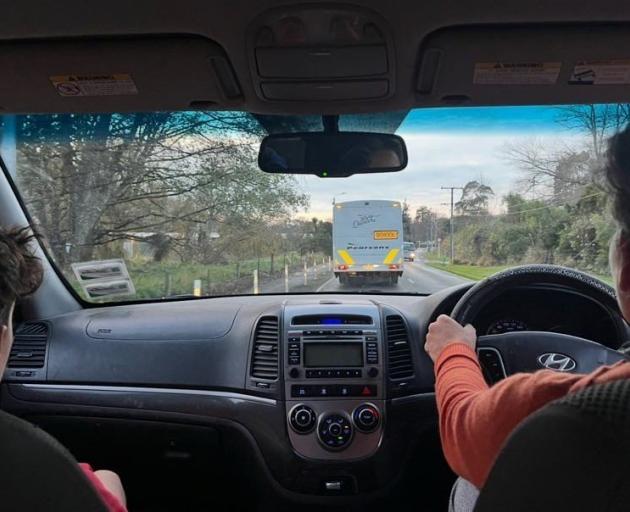
Michelle Hahn says she has been "pushed to the limit" by the situation, which arose when Weston School, her son’s former school, did not grant her son bus consent permission after he switched to a new school.
Ms Hahn said she drives her son to school every day, following the Tokarahi bus that carries her older children from Windsor to Oamaru, since the Weston School board of trustees did not grant permission for her son to travel on the same bus as his siblings.
After a year and a-half of driving, and the added pressure of fuel and road charges, Ms Hahn says as the sole caregiver she has been "pushed to her limits".
"This is seriously affecting my mental health and wellbeing.
"Weston School is a very good school and I don’t have anything against it. I am just against them not following the values they teach, of kindness and compassion, and caring for the environment.
"They are not analysing case by case about the bus consent form. It needs to change to help families who are struggling," she said.
The Ministry of Education (MoE) provides two school bus services for Weston School, based on the number and location of the school’s eligible pupils.
MoE acting group manager of school transport David McIntosh said if a pupil did not attend their closest school or fell out of the "eligibility" range for transport services, they must seek permission from any school being bypassed on the bus route.
Ms Hahn said despite many attempts to contact the principal and board of trustees, she was informed they would not be responding to any further correspondence.
Weston School principal Deidre Senior said it was a "governance issue" handled by the school board, and declined to comment.
Mr McIntosh said when caregivers choose not to enrol their children at the closest state or state-integrated school, the decision to grant the bus consent permission is at the full discretion of the bypassed school’s board, and the ministry is unable to influence their decision.
He said it was a long-standing aspect of the operational policy and had been a requirement under the ministry’s contracts with school transport providers since at least 2015.
If pupils chose not to attend their local school, this could impact a school’s operational funding and staffing entitlement, which were calculated on their school roll, he said.
The primary responsibility for transporting children to and from school rested with caregivers.
Ms Hahn said she chose the school for its environmental policy and did not take the decision to change schools lightly, although the decision had been made in her son’s "best interests".
She went online last week documenting her side of the experience.
The online post fuelled a call for change around the policy, and many parents said they had similar experiences with Weston School.
Weston School board of trustees chairman Hamish McKenzie declined to comment on questions on the school’s decisions not to grant bus consents.












